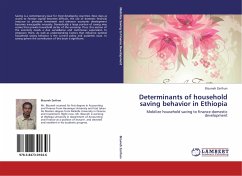In August 2003, the Ghanaian Government made history by implementing the first National Health Insurance System (NHIS) in Sub-Saharan Africa. Within three years, over half of the country's population had willingly enrolled into the National Health Insurance Scheme. The healthcare of people stands paramount and the health insurance scheme concept is one that would guarantee the health of all, thereby abolishing the "cash and carry system". Health care claims from providers are a major source of expenditure for the health insurance scheme. The financial performance of the NHIS is a function of the premium collected, the cost of health care services of the insured, the level of external subsidy, the size of the pool, and degree of economies of scale that is achieved. This study looks at the various risk characteristics that influence claims in the Ghana National Health Insurance Scheme. The outcome of the study shows that sex, age, marital status, cigarette smoking, alcohol drinking, living condition, distance and length of stay at the hospital are statistically significant in the determination of the Ghana National health insurance premiums since they considerably influence claims.
Bitte wählen Sie Ihr Anliegen aus.
Rechnungen
Retourenschein anfordern
Bestellstatus
Storno








